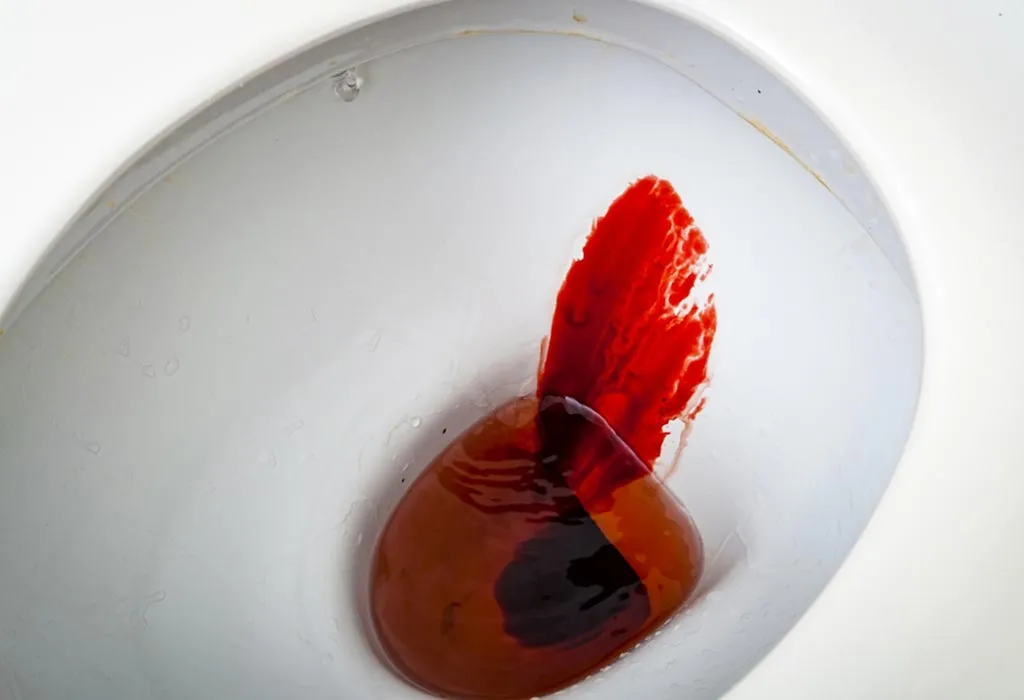Understanding Blood in Stools Is It Normal?

Blood in stools can be alarming and often raises questions about one’s health. It’s a topic that shouldn’t be ignored, as it could signify various underlying conditions. In this comprehensive guide, we’ll delve into the causes, symptoms, and when to seek medical attention for blood in stools.
Here are some common causes:
- Hemorrhoids: Swollen blood vessels in the rectum or anus can rupture, causing bleeding during bowel movements. Hemorrhoids are often characterized by pain, itching, and discomfort.
- Anal Fissures: Tears or cracks in the lining of the anus can lead to bleeding, especially during bowel movements. These fissures typically result from trauma or straining during defecation.
- Gastrointestinal Infections: Infections caused by bacteria, viruses, or parasites can inflame the digestive tract, resulting in bloody stools. Conditions like gastroenteritis or food poisoning are common culprits.
- Inflammatory Bowel Disease (IBD): Conditions such as Crohn’s disease and ulcerative colitis can cause inflammation and ulcers in the digestive tract, leading to bleeding.
- Diverticulosis: Small pouches, called diverticula, can form in the walls of the colon. When these pouches become inflamed or infected, they may bleed, causing blood in stools.
- Colorectal Cancer: While less common, blood in stools can be a symptom of colorectal cancer, especially in older individuals or those with a family history of the disease.
Symptoms to Watch Out For:
Hence Is blood in stools normal? Blood in stools, medically termed hematochezia, can stem from numerous factors, ranging from benign to severe.
In addition to blood in stools, certain accompanying symptoms may provide clues to the underlying cause:
- Abdominal pain or cramping
- Changes in bowel habits (diarrhea or constipation)
- Unexplained weight loss
- Fatigue or weakness
- Fever
- Nausea or vomiting
When Is Blood in Stools Considered Normal?
While blood in stools can be alarming, it’s not always indicative of a serious condition. In some cases, the presence of blood may be benign, such as in cases of hemorrhoids or minor rectal bleeding. However, it’s crucial to differentiate between normal occurrences and potential health risks.
For instance, small amounts of bright red blood on toilet paper or in the stool may be attributed to hemorrhoids or anal fissures, especially if accompanied by pain or itching in the anal area. In such cases, the bleeding often resolves on its own or with simple home remedies like increasing fiber intake or using over-the-counter creams.
However, if you notice persistent or recurrent bleeding, especially if it’s accompanied by other concerning symptoms like abdominal pain or changes in bowel habits, it’s essential to consult a healthcare professional promptly. While many cases of blood in stools are benign, certain underlying conditions require medical attention and treatment.
Seeking Medical Evaluation:
If you’re experiencing blood in stools or any associated symptoms, it’s advisable to seek medical evaluation to determine the underlying cause and appropriate treatment. Your healthcare provider may perform a physical examination, review your medical history, and recommend diagnostic tests such as:
- Stool tests to check for the presence of blood or pathogens
- Colonoscopy or sigmoidoscopy to visualize the colon and rectum
- Blood tests to assess for signs of infection or inflammation
- Imaging studies like CT scans or MRI scans to evaluate the gastrointestinal tract
Based on the findings, your healthcare provider can diagnose the underlying cause of blood in stools and develop a personalized treatment plan. Treatment may involve medications, lifestyle modifications, dietary changes, or surgical intervention, depending on the diagnosis.
Conclusion:
While blood in stools can be unsettling, it’s essential to approach the issue with caution and seek medical evaluation when necessary. Understanding the potential causes and accompanying symptoms can help distinguish between normal occurrences and indicators of underlying health conditions. Remember, timely intervention and proper management are key to ensuring optimal digestive health and overall well-being. If you’re experiencing persistent or recurrent blood in stools, don’t hesitate to reach out to your healthcare provider for guidance and support.




